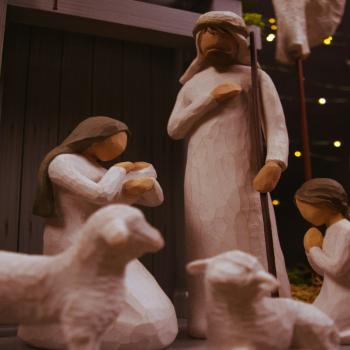
Random Acts of Kindness Day (RAK)
What is RAK Day & Why is it Important?
Saturday, February 17, is Random Acts of Kindness Day. This day emphasizes uniting people through simple actions that show compassion and kindness.
More specifically, this day strives to help people think about how they can positively impact their community. Along with benefitting others, psychologists believe generous acts also enhance the well-being of individuals demonstrating generosity.
How Can I Get Involved?
6 General Ways to Participate
According to awarenessday.com, there are six general ways to administer acts of kindness.
- Volunteer with an organization that helps the needy and community.
- Visit senior citizens and others who may be homebound due to health issues.
- Make a monetary or material donation to a charity.
- Perform a task for someone.
- When you make a purchase, pay for someone else as well.
- Compliment people.
Personal Experience
While unaware of R.A.K Day until February 2024, I have done most of the activities previously mentioned. One of my favorite high school memories was getting to wash dishes at Rachael’s Women’s Shelter in Washington, DC.
The reason why is washing dishes is a chore I did not (and still do not) like. However, knowing I was completing a task for women dealing with hardships taught me to appreciate God’s blessings.
One example of someone choosing to show a random act of kindness toward me happened about a year ago. I was having a rough day and was feeling down about myself. Then, someone told me they were proud of me for not allowing my disability to hinder me from being successful.
Those words lifted my spirit and gave me the encouragement I needed during a dark moment. My experience proves taking the time to do something as simple as giving a compliment can make a huge difference.
Does the Bible Promote Kindness?
Biblical Support.
Has learning about RAK Day and my personal experiences with acts of kindness not compelled you to show compassion to others? Perhaps the Bible can offer some motivation.
The word of God contains over two hundred instances of kindness, while kind appears in scripture more than four hundred times.
Kindness is an instrumental part of Paul’s teachings throughout the New Testament. Galatians 5:22-23 proves this as demonstrating kindness is proof that believers are bearing the Fruit of the Spirit.
Paul also instructs Christians to show kindness and affection to everyone (Romans 12:8; Colossians 3:12; Ephesians 4:32). In 1 Corinthians 13:4, he associates love with being kind, which compliments the Old Testament principle of loving your neighbor as you love yourself (Leviticus 19:18).
Random Acts of Kindness in Scripture
Joseph
Joseph is an Old Testament leader who demonstrates a random act of kindness when he forgives his brothers for selling him into slavery (Genesis 37:12-28). Joseph could have sought vengeance for the pain he endured because of their hatred.
Instead, he chooses compassion because he understood God used their evil to bring his vision to fruition (Genesis 50:20). His selflessness reveals God’s desire for families to forgive, reconcile, and restore their love for one another.
Rahab
Along with the desire for unified families, God also longs for people who fear Him. This truth manifests in the life of Rahab the prostitute when she chooses to hide two spies.
Rahab does this because she fears the Lord, who has given the spies the land (Joshua 2:4-11).
Rahab’s reverential wisdom saves her family and cements her legacy in the Faith Hall of Fame. Her actions also prove God can use the most unlikely people for His glory if they honor Him.
Ruth
Another unlikely woman who shows an unusual sense of compassion is the Moabite Ruth. Ruth devotes her life to caring for Naomi after her husband, father-in-law, and brother-in-law pass away (Ruth 1:3-5).
Ruth’s decision is even more honorable since she commits to spend the rest of her life in Bethlem and accept the God of Israel as her God (Ruth 1:14-18). God rewards Ruth’s dedication by blessing her with a husband and son.
This means Ruth will have security for the rest of her life and a seed to carry on the family legacy for Naomi. Ruth’s testimony shows one random act of kindness can be a gesture that replicates through a family lineage for generations.
Since God promises to curse those who disobey His commands and bless those who obey, I wonder if there is a reward called the generational blessing of kindness.
King David
Ruth’s Great-Granson David supports my curiosity in two ways. First, he decides not to retaliate against Saul out of respect for him as king (1 Samuel 24:5-7).
Second, David shows mercy to Saul’s grandson Mephibosheth by not killing him. Instead, David gives him a seat at the king’s table and restores his grandfather’s land to him (2 Samuel 9:7).
Some may argue David’s actions are not random since he is fulfilling his promise to be kind to Jonathan’s family (1 Samuel 20:14-15). However, David could have been like others throughout history who failed to keep promises once in high positions of authority.
David’s loyalty proves he is a person of integrity and a man after God’s own heart. David’s behavior also sets an example for how to serve those who are unable to do anything for someone else.
Jesus Christ Parables & Life
The Son of David and Savior of the world continues his lineage’s legacy of kindness in several ways. Through Jesus’ parables and life, kindness is shown as
- A Samaritan cares for an injured Jew who was ignored by Jewish religious leaders (Luke 10:29-37).
- A father restores his youngest child and reaffirms his jealous older son (Luke 15:11-32).
- He eats with sinners (Matthew 9:10-17).
- He forgives the woman caught in adultery instead of stoning her (John 8:1-11).
- He grants a thief’s request for salvation, while enduring the agony of crucifixion (Luke 23:32-23).
- He sacrifices his life and resurrects to offer salvation to the whole world (John 19:16-20:30).
Takeaway
The biblical examples above suggest random acts of kindness require setting aside one’s concerns to help somebody else without expecting a blessing in return. Doing so creates ways for God to use people in ways they never thought possible.
So, ask God to create opportunities for you to express kindness during RAK Day and daily so some can experience the love of God.
“There is no greater love than to lay down one’s life for one’s friends” (John 15:13, New Living Translation).













